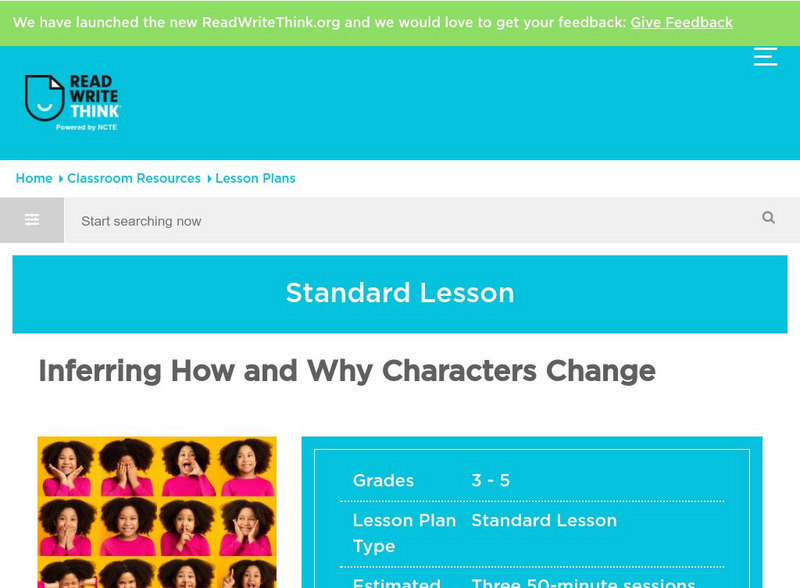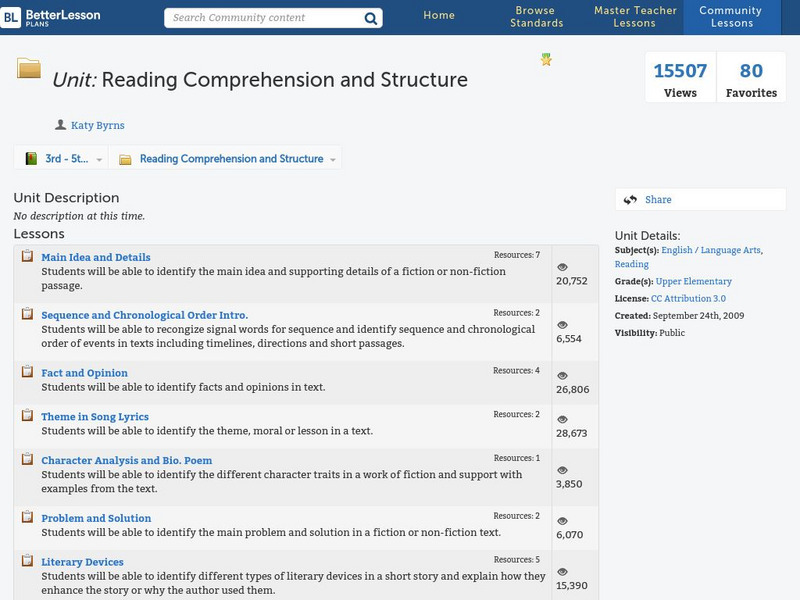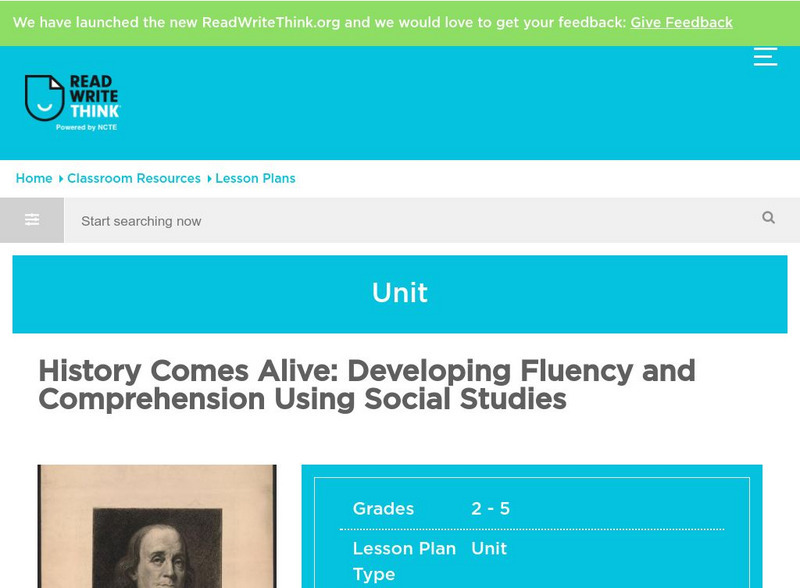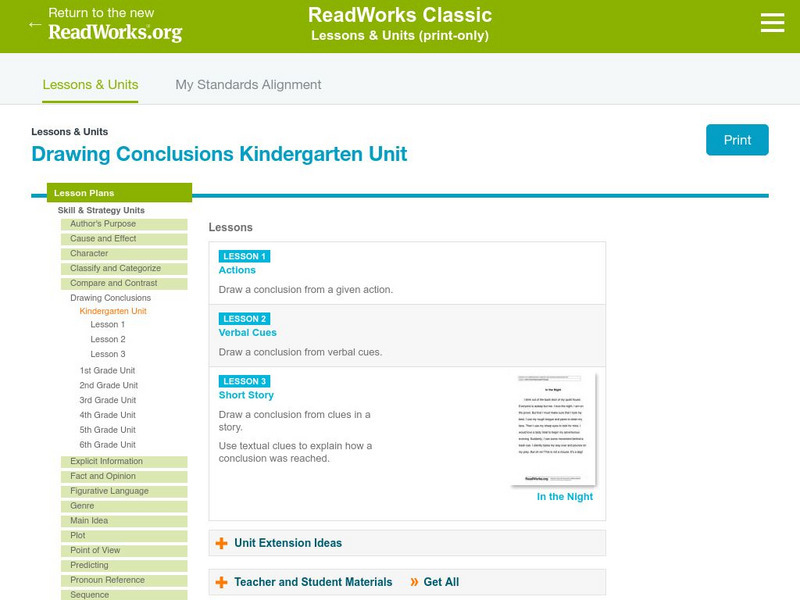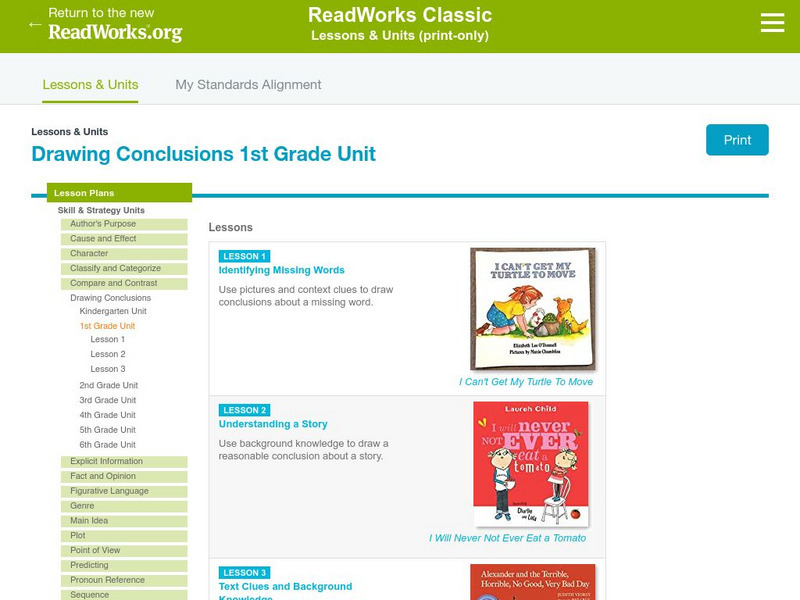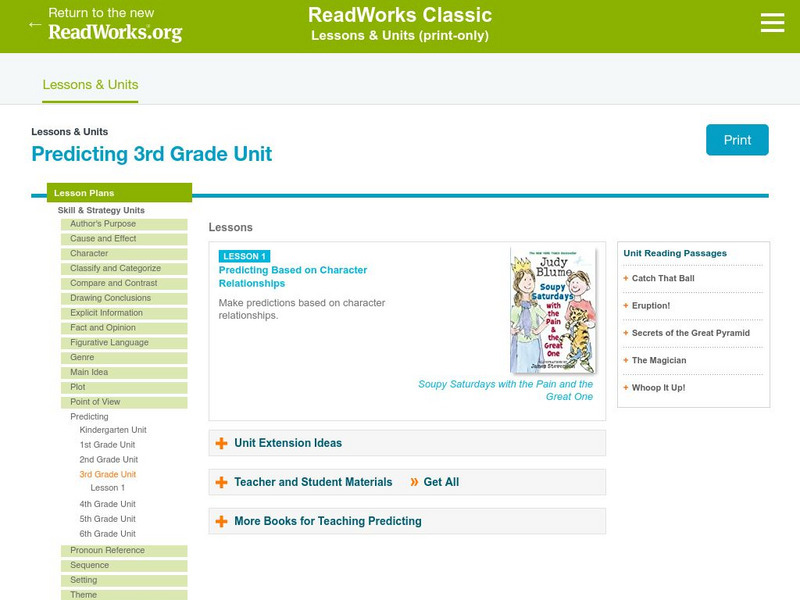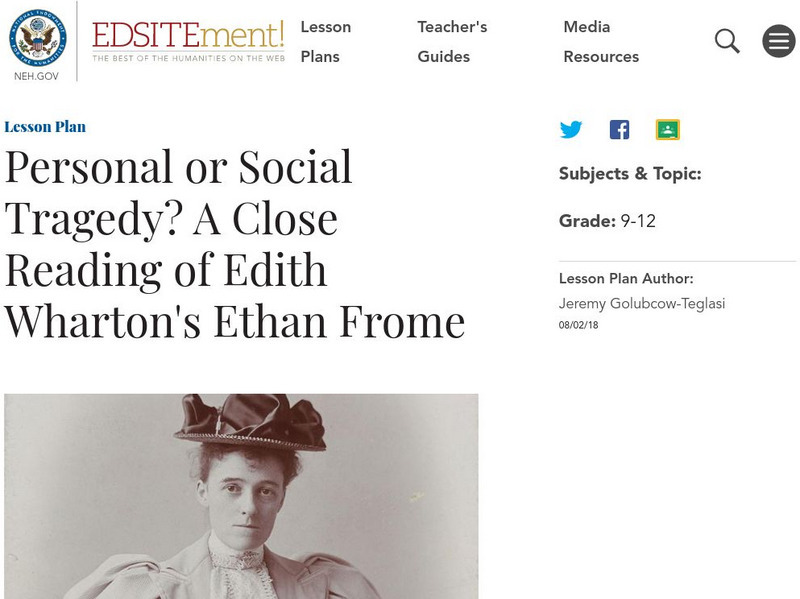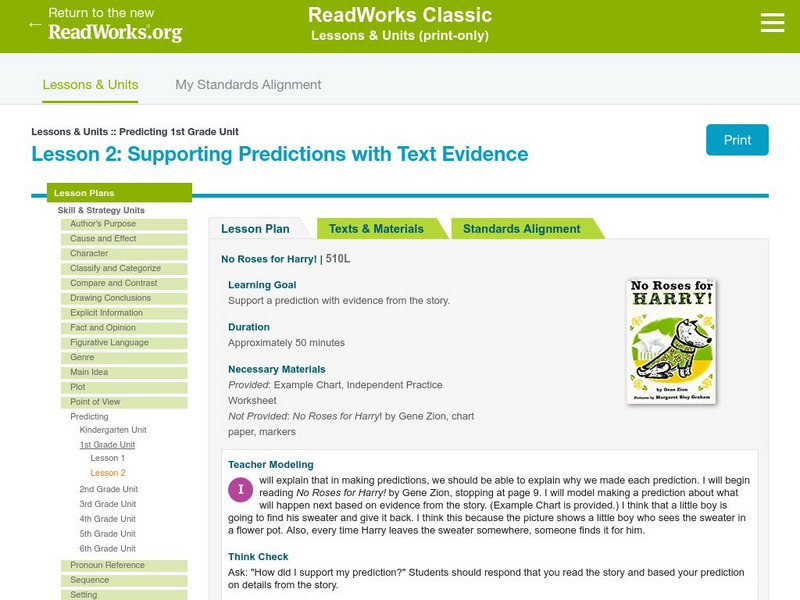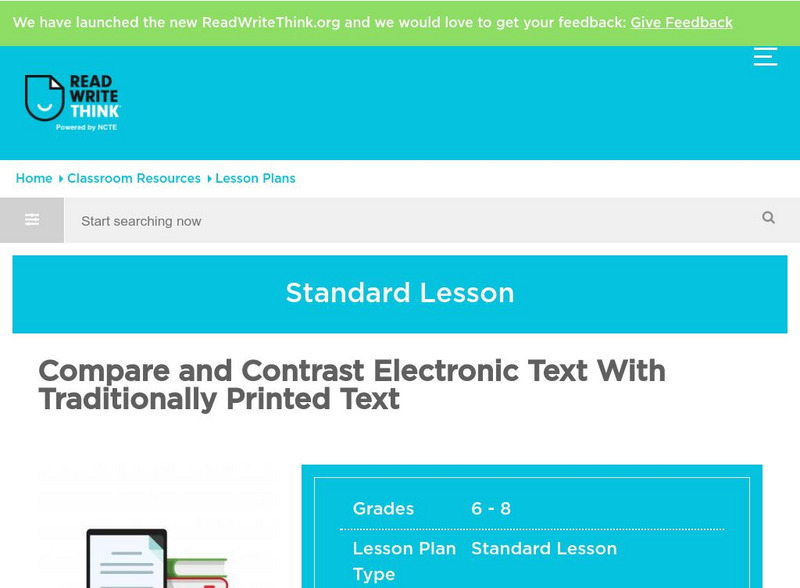ReadWriteThink
Read Write Think: Background for the Graphic Novel Persepolis: A Web Quest on Iran
This lesson focuses on students researching and learning about Iran's culture, society, and leadership before and after the 1979 Revolution in preparation for reading the graphic novel Persepolis. Students work in small groups to...
ReadWriteThink
Read Write Think: How and Why Characters Change
This lesson plan examines and makes inferences into the change and development in characters. Included in the lesson plan is an overview, practice, objectives, resources, preparation, and more.
Better Lesson
Better Lesson: Unit: Reading Comprehension and Structure
This unit focuses on reading comprehension and structure. It includes lessons on the main idea and supporting details, theme, sequence, fact and opinion, literary devices, character, text features, inferences, organization of nonfiction,...
ReadWriteThink
Read Write Think: History Comes Alive: Developing Fluency and Comprehension
Let the power of imagination and inference serve as a "time machine" to bring Benjamin Franklin into the classroom! History and science come to life in a dialogue with Franklin the inventor, developed through lesson activities that...
Read Works
Read Works: Kindergarten: Three Lesson Unit: Drawing Conclusions
[Free Registration/Login Required] Three lessons designed to introduce young learners and beginning readers to the concept of drawing conclusions based on actions performed in a charades game, on verbal cues given in a guessing game, and...
PBS
Pbs Learning Media: Walmart Middle School Litercy Initiative
Interactive, student-paced lessons on such literacy skills as categorizing, comparing and contrasting, summarizing, evaluating, determining cause and effect, using text features, connecting, inferring, sequencing, understanding problems...
Read Works
Read Works: Predicting 1st Grade Unit
[Free Registration/Login Required] A two-lesson unit designed to teach students to make predictions and support them with details from the text. Lessons are based on the books Wemberly Worried by Kevin Henkes and No Roses for Harry! by...
Read Works
Read Works: Drawing Conclusions 3rd Grade Unit
[Free Registration/Login Required] A two-instructional activity unit on drawing conclusions through which students learn how to recognize the difference between implicit information and drawing conclusions. Students also learn to draw...
Read Works
Read Works: Drawing Conclusions 1st Grade Unit
[Free Registration/Login Required] A three-lesson unit on drawing conclusions through which students learn how to use pictures and context clues to discover a missing word and to draw conclusions about a story. Students also use...
Read Works
Read Works: Predicting 3rd Grade Unit
[Free Registration/Login Required] This is a lesson plan designed to teach students to make predictions based on relationships between characters. The lesson plan is based on the book Soupy Saturdays with the Pain and the Great One by...
Read Works
Read Works: Fourth Grade: One Lesson Unit: Drawing Conclusions
[Free Registration/Login Required] Students are guided through a lesson to understand the difference between explicit information and conclusions drawn from a text. With free login, users have access to passages used in this lesson.
Read Works
Read Works: Grade 1: Three Lesson Unit: Character: Actions, Feelings, Looks
[Free Registration/Login Required] A series of three lesson plans, based on David Shannon's books No, David!, David Gets in Trouble, and David Goes to School. Students learn how to utilize text and picture clues to determine and describe...
National Endowment for the Humanities
Neh: Edsit Ement: Personal or Social Tragedy? Edith Wharton's Ethan Frome
This lesson will challenge students to weigh the textual evidence for and against the claim that Ethan's woes lay in staying in Starkfield-and not in the details of his personal relationships. In the process, students will close read...
Read Works
Read Works: 1st Grade Unit: Supporting Predictions
[Free Registration/Login Required] A lesson utilizing the book No Roses for Harry! by Gene Zionin in which students make a prediction and then support it with details from the text. Ideas for direct teaching, guided practice, and...
ReadWriteThink
Read Write Think: Compare/contrast Electronic Text With Traditionally Printed Text
Lesson allows for middle school students who are familiar with researching electronic sources to gain a deeper understanding of the benefits of online resources versus traditional print.
PBS
Pbs Learning Media: Teacher's Guide: Xavier Riddle and the Secret Museum
Use this teacher's guide to plan how you'll integrate video clips, biosketch readers, and graphic organizers for Xavier Riddle and the Secret Museum across your Grade 1-2 classroom curricula. From guided reading to a living wax museum,...



